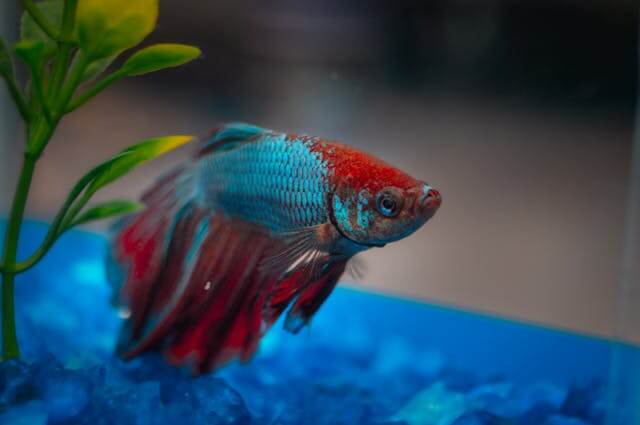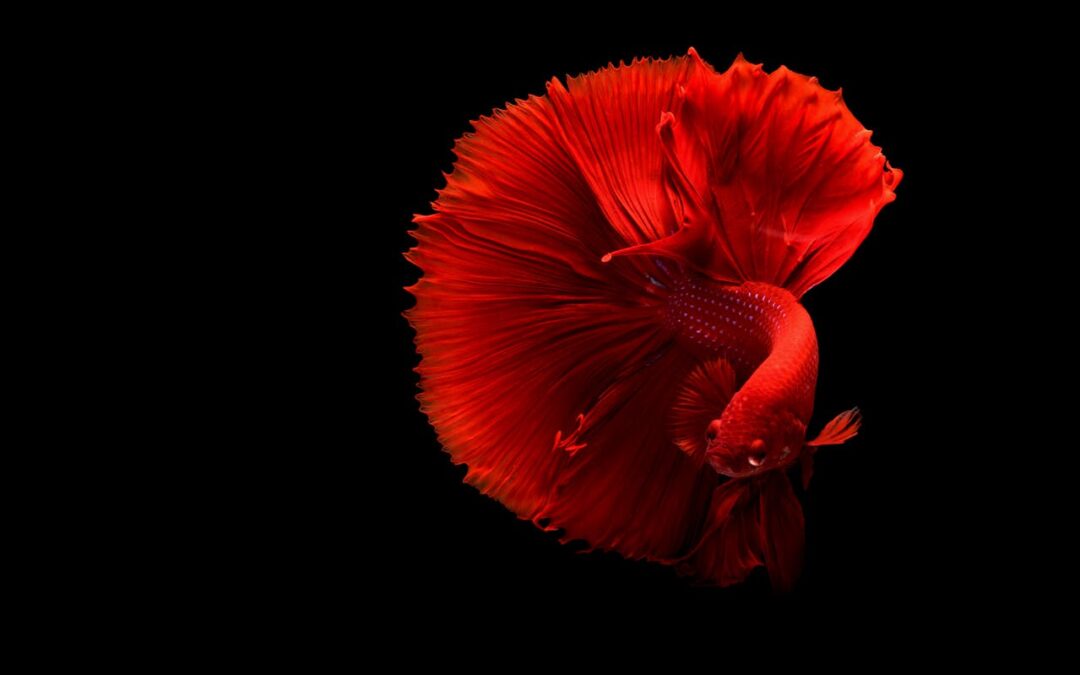Table of Contents
ToggleBetta fish, also known as Siamese fighting fish, are some of the most captivating and colorful freshwater fish that people keep as pets. With their vibrant colors and feisty personalities, they can make an eye-catching addition to any aquarium. But before bringing home a betta fish, many owners wonder, “How long do betta fish live?”
Betta fish have an average lifespan of about 2-5 years in captivity. However, with proper care, some bettas have been known to live even longer. Factors like diet, tank environment, water quality, and genetics play significant roles in determining a betta’s lifespan. In this article, we’ll break down these factors and offer tips on how you can help your betta fish live a longer, healthier life.
Betta Fish Lifespan in the Wild vs. Captivity
In the wild, betta fish generally live shorter lives, often only 1-2 years. Wild bettas face natural threats like predators, environmental fluctuations, and competition for food, which can reduce their lifespan. In captivity, however, betta fish are shielded from these dangers and receive consistent food and care, giving them a much better chance to live longer.
What Affects a Betta Fish’s Lifespan?
Several factors contribute to how long a betta fish will live in captivity. Here’s a closer look at the key elements that affect their lifespan.

1. Genetics
Just like humans, the lifespan of betta fish is partly determined by genetics. Some bettas are predisposed to live longer based on their genetic lineage. When buying a betta, try to choose one from a reputable breeder, as these breeders often select for health and longevity traits in their breeding programs.
2. Water Quality
Water quality is one of the most critical aspects of betta care. Poor water quality can lead to stress and disease, both of which can significantly shorten a betta’s life. Betta fish thrive in clean, stable water conditions. Here’s what to focus on:
- Temperature: Betta fish are tropical and need warm water, ideally between 76°F and 82°F (24°C – 28°C). Water that is too cold or too hot can lead to stress and health problems.
- Filtration: Bettas do well with a gentle filter that maintains water cleanliness without creating too strong a current. Good filtration reduces waste buildup, which lowers the chance of harmful bacteria or toxins like ammonia and nitrates accumulating in the tank.
- Water Changes: Regular water changes are essential for keeping your betta’s tank clean. Aim to change about 20-30% of the tank water weekly to reduce toxins.
3. Tank Size
A common misconception is that betta fish are content in tiny bowls. While they can survive in small spaces, they thrive in larger tanks. A tank of at least 5 gallons is recommended for a single betta fish, as it provides ample room for them to swim and explore. Larger tanks are also easier to maintain and keep stable, which promotes a healthier environment.
4. Diet and Nutrition
A well-balanced diet is essential to keeping a betta fish healthy and vibrant. In the wild, bettas are insectivores, feeding on small insects and larvae. In captivity, their diet should include high-quality pellets designed specifically for bettas, which provide the right nutrients.
You can also supplement their diet with treats like bloodworms, brine shrimp, and daphnia. These high-protein snacks mimic their natural diet and offer them additional nutrients. Feed your betta in moderation to avoid overfeeding, as uneaten food can decay in the tank, lowering water quality.
5. Stress Levels
Stress is a silent killer for many aquarium fish, and bettas are no exception. Betta fish can become stressed due to various factors, including poor water quality, tank mates that are too aggressive or incompatible, and lack of hiding spaces. High-stress levels can weaken a betta’s immune system, making it more susceptible to diseases.
Consider adding decorations or plants to the tank to give your betta places to hide and feel safe. If you want to house other fish with a betta, make sure they’re compatible and peaceful tank mates.
6. Tank Environment and Enrichment
Betta fish are intelligent and curious creatures. They appreciate a tank that offers stimulation and enrichment. Adding plants, rocks, and hiding spots can make a betta feel more at home and reduce stress. Floating plants, in particular, are an excellent addition, as they mimic the betta’s natural habitat and give them a place to rest near the surface.
Recognizing the Signs of Aging in Betta Fish
As bettas age, they’ll exhibit certain signs of slowing down. They may lose some of their vibrant colors, and their movements may become less energetic. Older bettas may also spend more time resting, often on leaves or at the bottom of the tank. These signs are normal in an aging betta, and with extra care, they can still live comfortably.

Tips to Help Your Betta Fish Live Longer
- Maintain a Consistent Feeding Schedule: Feed your betta twice a day with appropriate portions, and include a fasting day once a week to prevent bloating.
- Monitor Water Conditions Regularly: Use a water testing kit to check pH, ammonia, nitrate, and nitrite levels weekly.
- Keep a Stable Water Temperature: Use a heater to maintain consistent warmth in the tank.
- Provide Stimulation: Rearrange decorations or introduce new objects periodically to keep your betta mentally engaged.
- Observe Health Changes: Watch for signs of common betta illnesses, such as fin rot or ich, and address issues quickly.
Conclusion: How Long Do Betta Fish Live?
With proper care, your betta fish has the potential to live a healthy and full life of 3-5 years or even longer. By focusing on water quality, providing a balanced diet, minimizing stress, and ensuring a stimulating environment, you can give your betta the best chance for a long life.
Ready to start your journey with a vibrant, healthy betta? Browse our recommended aquarium setups and essential care supplies [here] to make sure you’re fully prepared to give your betta the life it deserves!






